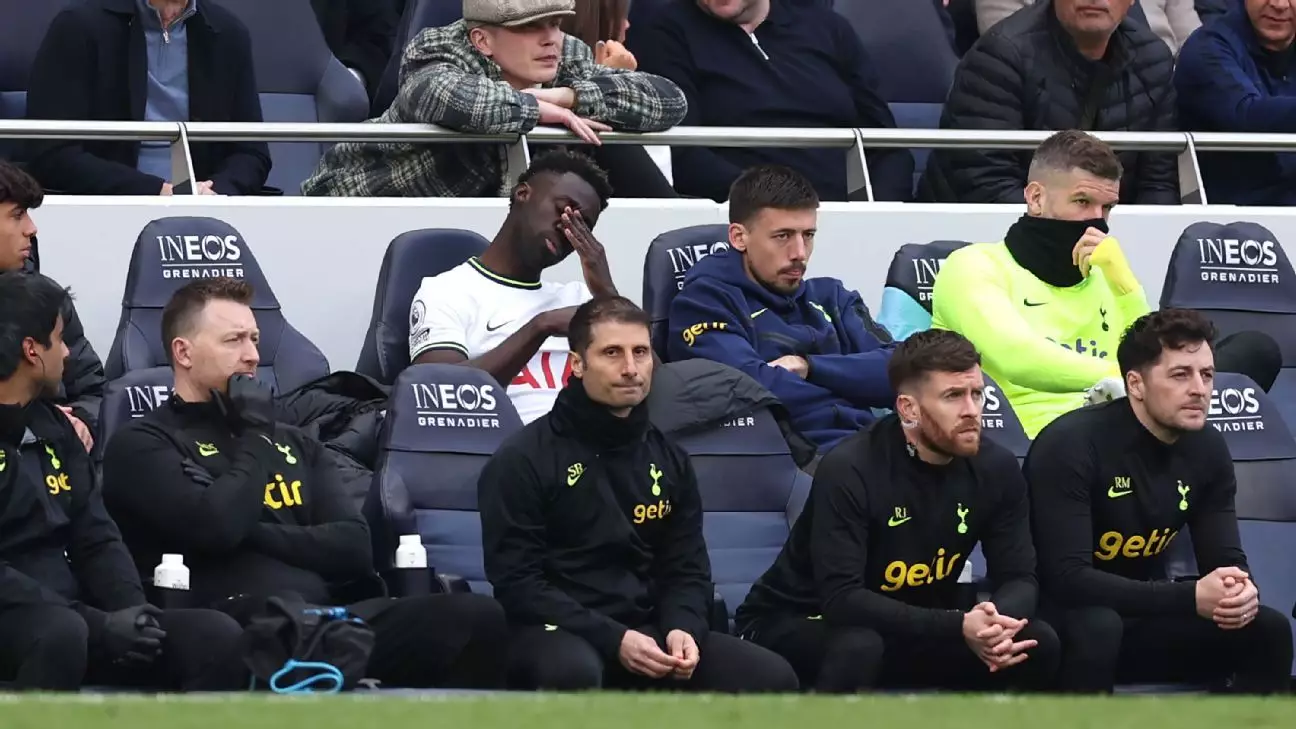In recent weeks, the co-ownership of Manchester United by INEOS has sparked considerable attention as the company is reportedly negotiating to terminate its sponsorship agreement with Tottenham Hotspur ahead of schedule. The 2022 deal, which was meant to promote INEOS’ 4×4 Grenadier vehicle at Spurs’ stadium, appears to be part of a larger trend of the petrochemical giant reassessing its financial commitments within the sports sector. This reconsideration raises intriguing questions about both the motivations behind these sponsorship shifts and the potential repercussions for both clubs involved.
Reports suggest that discussions are productive and amicable, indicating that INEOS is not merely looking to eliminate financial excess but is also attempting to recalibrate its sporting presence. This pivot comes at a time when the company is scaling back its investments across various sports. Such decisions reflect a strategic shift that could be interpreted as a response to both global economic pressures and the changing dynamics of sponsorship value.
The recent legal entanglement for INEOS with New Zealand Rugby — triggered by their abrupt exit from a significant sponsorship agreement — points to the complexities involved in altering previously established contracts. The cited reasons for discontinuation, such as the “deindustrialization of Europe,” suggest that broader economic factors are influencing the company’s strategy. This reflection not only impacts sports sponsorships but also questions INEOS’s long-term vision in a landscape increasingly marked by fiscal prudence.
As INEOS grapples with its commitments, its relationship with Manchester United also comes under scrutiny. The club’s operational profits have plummeted, dropping from £27.5 million to a mere £3 million year-on-year, prompting discussions on further potential redundancies aimed at cost reductions. The financial management strategies involved, particularly following the controversial decision to extend Erik Ten Hag’s contract before sacking him shortly thereafter, have incurred significant losses that now loom over every decision taken by the management.
This financial strain adds an additional layer of tension to the potential dissolution of their sponsorship with Spurs, as it highlights the pressing need for sustainable practices within the club. With the club’s current financial reports painting a stark picture, INEOS’s sponsorship decisions could begin to place pressure not just on external relations but also directly on operational facets within United.
The shifting dynamics of sports sponsorships mirror larger trends within both the economy and consumer behaviors, leading entities like INEOS to revisit their involvement in sports. The turbulence that Manchester United currently faces reflects a microcosm of challenges many organizations endure in today’s fast-evolving marketplace. As companies assess their brand alignments and financial investment strategies, the implications reach far beyond immediate monetary concerns.
As INEOS considers the ending of partnerships and sponsorships, Manchester United finds itself amidst a transformative period, marked by necessity and urgency. The evolving nature of sports sponsorship, compounded by economic fluctuations, demands that both parties carefully navigate these waters. The outcomes of these negotiations could redefine not only the future path of INEOS and its sporting affiliations but the very landscape of sports financing itself.

Leave a Reply